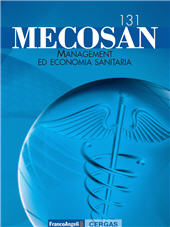Ha senso studiare la natura umana?
15-32 p.
The title's question is affirmatively answered in the essay. Despite the principled objections that have submerged the varied attempts to develop a philosophical anthropology during the twentieth century, it makes sense to study a hyperobject such as human nature, all the more so in the intellectual context set up by modern philosophical orthodoxy. In particular, it makes sense to challenge the narrow self-understanding of modern philosophical naturalism, without, however, regressing to an essentialist view of our biological species. From this point of view, the inquiry into human nature fades into a radical, albeit not skeptical, self-reflection on our form of life that relies on the notion of 'strong' evaluationthat is, the experience of a value that cannot be reduced to the projective simulacrum of a subjective preferenceas a phenomenon to be saved at all costs, lest the loss of self and world. From this point of view, the study of human nature appears as a humanistic bulwark against the nihilistic denial
of the transformative potential of such self-reflection. While in theory it may seem a minimal gain, in fact it is the precondition for being able to continue to believe that the world is true or exists. [Publisher's text]
Fa parte di
Società degli individui : 82, 1, 2025-
Articoli dello stesso fascicolo (disponibili singolarmente)
-
Informazioni
Codice DOI: 10.3280/LAS2025-082002
ISSN: 1972-5752
PAROLE CHIAVE
- Human nature, naturalism, value, strong evaluation, philosophical anthropology, hyperobjects, biological species, neodarwinism


